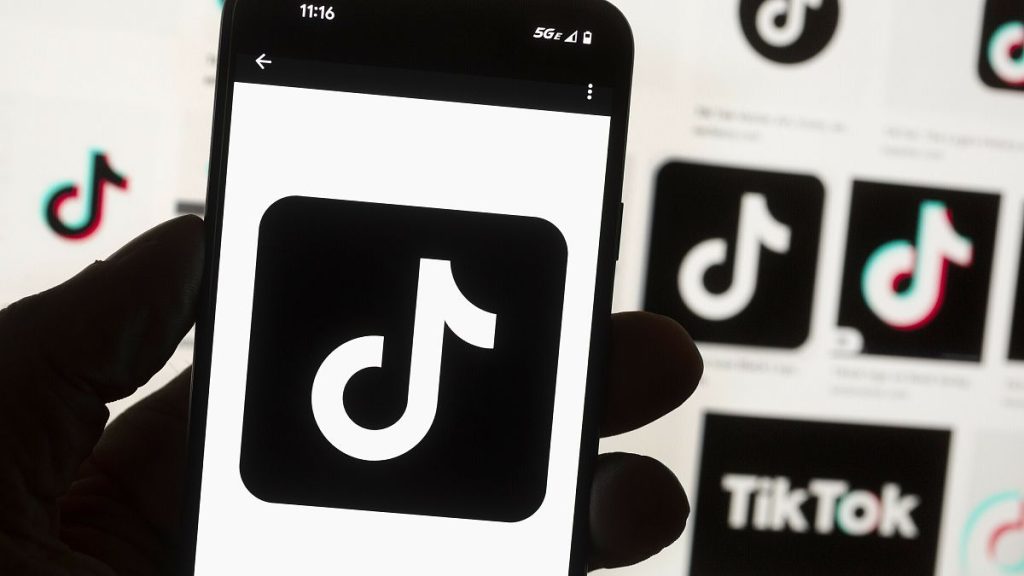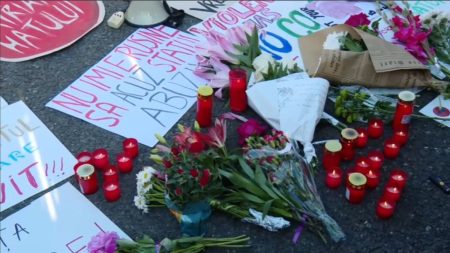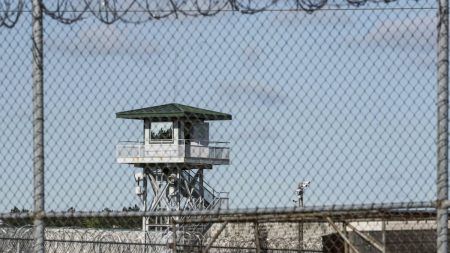The Albanian government’s decision to impose a one-year ban on TikTok has sparked controversy and raised questions about the balance between protecting children and safeguarding freedom of speech. The ban, announced by Prime Minister Edi Rama, stems from growing concerns about the platform’s alleged role in inciting violence and bullying among Albanian youth. The catalyst for this drastic measure was the tragic death of a teenager in mid-November, reportedly stabbed by another youth after a quarrel allegedly originating on a social media platform. While the government points to TikTok as the source of the conflict, the company vehemently denies any connection, stating that it found no evidence linking the victim or perpetrator to TikTok accounts and asserting that videos related to the incident were circulated on a different platform.
The Albanian government’s decision reflects a growing global anxiety regarding the impact of social media, particularly on young people. The proliferation of violent content, cyberbullying, and the potential for online disputes to spill over into real-world violence has prompted governments worldwide to grapple with how to regulate these platforms effectively. While some countries have implemented age restrictions or limited access to certain features, Albania’s proposed complete ban represents a more extreme approach. This decision raises concerns about censorship and the potential for governments to overreach in their attempts to control online spaces. Critics argue that such a ban infringes on freedom of speech and limits access to a platform that, for many, serves as a source of entertainment, connection, and even education.
The Albanian government’s justification for the ban rests on its assertion that TikTok promotes a culture of hatred, violence, and bullying. Prime Minister Rama argues that Albania, as a small nation, lacks the leverage to compel TikTok to alter its algorithms and curate its content in a way that mitigates these negative influences. He contends that the platform’s operations in China, where its parent company ByteDance is based, are markedly different, focusing on educational and pro-social content. This comparison underscores the government’s frustration with what it perceives as a double standard, where Albanian children are exposed to harmful content while their Chinese counterparts are presented with a more curated and positive online experience.
However, TikTok disputes these claims, emphasizing its commitment to user safety and highlighting its efforts to combat harmful content. The company has invested in content moderation technologies and policies designed to identify and remove videos that violate its community guidelines. It also provides tools for users to report inappropriate content and block or mute other users. While acknowledging the ongoing challenges in moderating a platform of TikTok’s scale, the company maintains that it is actively working to create a safer online environment. The clash between the Albanian government’s assertions and TikTok’s defense underscores the complex and often contentious debate surrounding the responsibility of social media platforms for the content shared on their platforms.
The Albanian government’s decision has ignited a political firestorm within the country. Opposition parties have denounced the ban as an authoritarian overreach, accusing the government of suppressing freedom of speech and using the tragic incident as a pretext to exert greater control over online platforms. They argue that the ban is a disproportionate response to the problem and that less restrictive measures, such as increased media literacy programs and closer collaboration with schools and parents, would be more effective in addressing the underlying issues of bullying and violence. This political divide reflects the broader societal debate about the appropriate role of government in regulating online spaces and the tension between protecting individual freedoms and ensuring public safety.
The Albanian case highlights the growing global challenge of regulating social media platforms. While governments grapple with the potential harms of these platforms, outright bans raise concerns about censorship and the restriction of free expression. Finding a balanced approach that protects vulnerable users, particularly children, without stifling online discourse remains a complex and evolving challenge. The Albanian government’s decision to ban TikTok serves as a stark reminder of the need for ongoing dialogue and collaboration between governments, tech companies, and civil society to navigate the complex landscape of online safety and freedom of expression. The outcome of this ban and the responses of other nations will undoubtedly shape the future of social media regulation and its impact on online communities worldwide.










